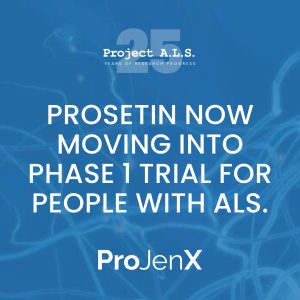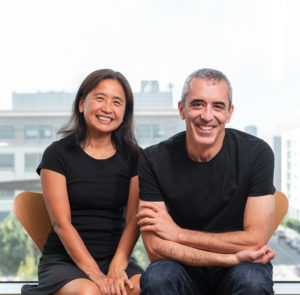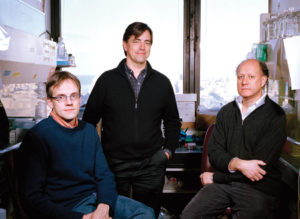THE PROJECT ALS MISSION
Project ALS identifies and funds the most promising scientific research that will lead to the first effective treatments and a cure for ALS. We recruit the world’s best scientists and doctors to work together—rationally and aggressively—to develop a better understanding of the ALS disease process and, in parallel, better therapeutic strategies.
Read about the latest updates in ALS research, and see the Project ALS research philosophy – something we’re proud to say has accelerated the pace of research.
WHAT'S NEW WITH PROJECT ALS

BREAKING NEWS
Dear Friends, BREAKING NEWS: The all-new drug developed by the Project ALS Therapeutics Core for the treatment of ALS, is now moving into Phase 1 trial for people with ALS. You made prosetin happen during the pandemic. You made prosetin happen when we went back to the lab for fine-tuning. You made prosetin happen for the first parts of Phase 1, when prosetin was tried in those without ALS in

Models Make Medicines: How Project ALS’ Focus on Multidisciplinary Models is Revolutionizing ALS Therapy Development
ALS has been a notoriously difficult disease to address therapeutically because of its heterogeneity in the clinic. The progression and symptoms of ALS differ broadly from person to person, and though 10% of cases can now be linked to specific genetic mutations, the progression of ALS for any given mutation may still differ per person, and the 90% of ALS cases that are sporadic show wide variability as well. This

Motor Neurons in a Dish: The Scientific Breakthrough that Fundamentally Changed ALS Research
In order to prevent, treat, or cure diseases, scientists rely on methods for identifying consistent mechanisms behind disease, and efficiently testing potential therapies on a broad scale. A central goal of Project ALS has been to support research efforts that develop tools for studying ALS disease mechanisms, and therefore have long-term promise in the development of future therapies, diagnostics, and potential cures. ALS has been a historically difficult disease to
